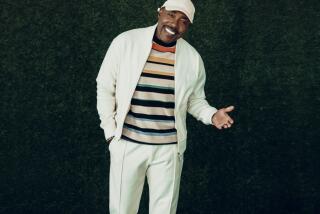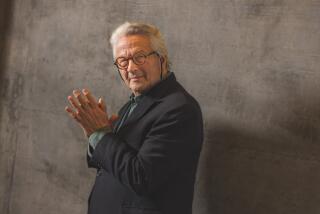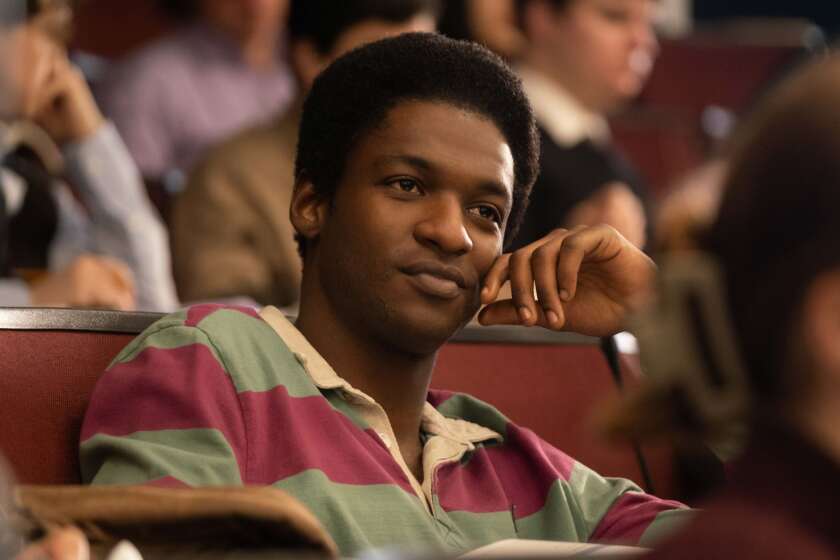Q&A: ‘Furious 7’ director James Wan talks franchise diversity, Paul Walker’s death
The high-revving “Fast & Furious” franchise has made more than $2 billion worldwide since the first film launched in 2001.
“Furious 7,” the latest installment, is expected to race to a domestic launch of about $115 million this weekend, delivering the biggest opening yet for the series.
This time around, director James Wan took over the reins from Justin Lin, who directed the last three films in the franchise.
Wan comes from the world of low-budget horror flicks. His 2004 directorial debut, “Saw,” which cost just $1.2 million to make, took in $56 million in the U.S. and Canada. His next box office hit, “Insidious,” was shot for just $980,000 but grossed $97 million worldwide.
“James is a terrific director,” Donna Langley, Universal Pictures’ chairman, told The Times in a phone interview earlier this week. “He was new to the franchise...he brought a little different sauce to the menu.”
Ahead of the film’s opening weekend, Wan talked to us about the franchise’s diversity, coping with the death of Paul Walker and finally finishing the film.
How did you feel getting picked to direct the latest film in such a known franchise ?
I was exhilarated. I’ve always wanted to make an action movie – I’m a fan of this franchise as well. It was exciting for me to jump into this.
You have a background in low-budget horror movies – how did that help your vision for this film? What were some of the challenges of taking on a big budget action?
I think [my background] has helped with problem solving. At the end of the day...it doesn’t matter whether the film is big or small, there are always issues you have to deal with. It just so happens that on a bigger film, you’re dealing with bigger problems. My low-budget training has forced me to be creative in terms of finding solutions to deal with issues. I tried to apply that mentality to this film.
The crowd for the “Furious 7” debut at South By Southwest Festival was mostly non-festival goers who were just super fans of the franchise. Why do you think “Fast & Furious” draws in such diverse audiences? Why has it resonated with fans for so many years?
I think people really like the characters and the actors playing the characters. The reason that the action can be so larger than life is because the human characters are grounded in who they are.
Having such a diverse cast and crew is what makes the “Fast & Furious” films so unique to all the other studio tentpole films that just have a very singular look to them. I think people really acknowledge that and appreciate that. Our culture today that we live in is getting so diverse, yet in Hollywood there’s not a lot of diversity.
It’s not just one element that makes a movie or series of movies so beloved. I don’t think action alone is enough to sustain a film franchise. There are tons of action movies out there that come and go and people don’t care about. So many elements make up why people love this series of films.
Obviously after Paul Walker’s death, everyone was rightfully emotional. As a director, how did you handle that on set while also managing the cast and crew?
It was very tough for all of us to begin with. We were all heartbroken by what happened. The concept for me as a director was to pick up the pieces – wake up and get back on set and try to rally the troops to try and finish the movie. It was a very daunting concept ... but it was one that we realized we had to do. We had to finish this movie. We wanted to finish this movie for Paul, we wanted to finish a movie that he is proud of that would honor his legacy and memories. Moving ahead, that’s what we set out to do. Everything from that point on was setting up the movie to lead to that sendoff at the end of the film.
What was it like working with Paul Walker’s brothers, Cody & Caleb, on set?
The incredible thing about having the family with us to finish the rest of the movie was that it felt like there was closure for the actors. Paul’s brothers have mannerisms like Paul – they moved like Paul, talked like Paul – in a lot of ways it gave the actors closure. I know it also gave the family closure as well. It allowed Cody and Caleb to do one last thing for their brother…it was important for them as well. I think at the end of the day that it was the right thing to do for all of us.
How did you feel after finally finishing the film?
I feel bittersweet. It has been the most difficult journey of my career...it’s the hardest movie I’ve ever had to make. It was such a challenging movie before Paul’s passing to begin with and it just got more difficult after. Now, to see people reacting to it and loving it and enjoying it...it’s a big relief for me. I started out as wanting to make this the most fun movie I could. My goal became making a movie that Paul would be proud of.
For more news on the entertainment industry, follow me @saba_h
More to Read
Only good movies
Get the Indie Focus newsletter, Mark Olsen's weekly guide to the world of cinema.
You may occasionally receive promotional content from the Los Angeles Times.











